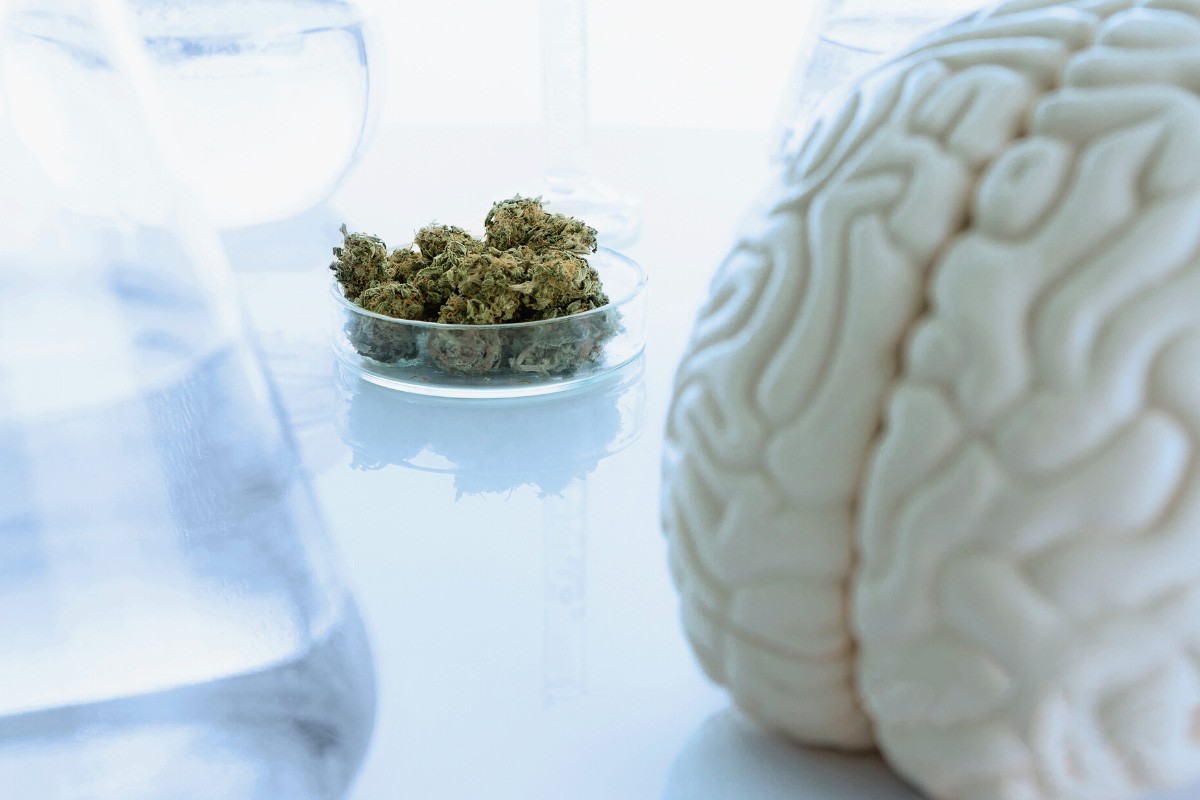What is Crohn’s disease?
Crohn’s disease is a chronic inflammatory disease, where inflammation of the digestive tract occurs in episodes. Due to problems in daily life, such as diarrhea, incontinence, abdominal pain and fatigue, the quality of life of patients can be affected. According to current knowledge, the disease is not curable. Crohn’s disease is often treated with medication, although the response rate to drug therapy is only 40 to 60%. As a new alternative treatment of symptoms with medical cannabis has been researched for several years. Nevertheless, there are only a few clinical placebo-controlled studies so far.
Scientific research on Crohn’s disease and cannabis oil
Naftali and colleagues from the Sackler School of Medicine in Tel Aviv, Israel, investigated the potentially effective effects of cannabis on symptoms in Crohn’s disease. In a placebo-controlled study published in 2021, 56 participants took either cannabis oil or a placebo (olive oil with chlorophyll) for 8 weeks. A placebo is a drug without a medicinal agent, which in this study was administered in the form of oil. Neither the investigators nor the participants knew whether they were in the placebo group (26 participants) or the cannabis oil group (30 participants). In the study, the investigators wanted to examine the effect of CBD-rich cannabis for the relief of disease symptoms in Crohn’s disease. These disease symptoms included increased bowel movements, abdominal pain, inflammation of the bowel, weight loss, and impaired quality of life. To capture this, the researchers used medical interviews, physical exams and a questionnaire to determine Crohn’s disease activity.
A total of 54 patients who attended at least one follow-up appointment at 3 months, 44 with another follow-up appointment at 6 months, and 32 patients who attended all three appointments participated in the study. Patients used medical cannabis to treat pain, anxiety and post-traumatic stress disorder, sleep problems, and to improve mood or alertness. Over the course of the study, medical cannabis was taken an average of 9 to 11 times weekly orally, in oral spray form, or via inhalation. Compositional analysis of the cannabis showed that, on average, more cannabidiol (CBD) was taken than tetrahydrocannabinol (THC).
Study procedure
A prerequisite for participation was the diagnosis of Crohn’s disease, which must have occurred at least three months previously. After screening, both groups took the oils in drop form 2 times daily. They started with one drop per dose and increased the dose until the pain sensation improved or side effects occurred. One drop of the cannabis preparation used contained 16% CBD and 4% THC. The effect of cannabidiol (CBD) is mainly described as anti-inflammatory, antioxidant and anti-anxiolytic, and the effect of THC as analgesic, sleep-inducing and appetite-stimulating. One drop contains 0.05 ml, so the starting dose consisted of 8mg CBD and 2mg THC taken orally 2 times a day before meals. The subjects increased the dose gradually. The maximum dose was 40 drops daily. After the study period, the symptoms of the disease, the quality of life and newly added satisfaction with the treatment were recorded again.
Is cannabis-oil a forward-looking treatment for Crohn’s disease?
The results of the study show that cannabis oil led to an improvement in the subjectively perceived quality of life of the participants compared to the group with the placebo oil administered. In addition, improvements in sleep, pain, abdominal swelling, appetite, and general well-being were noted in the cannabis oil group. These improvements were not observed in the placebo group. In the cannabis group, 75% of subjects reported to have noticed an immediate effect upon ingestion. In comparison, 75% of the placebo group reported having noticed an effect only after 2 weeks. The difference in duration of effect (for the placebo group, the placebo effect) showed that cannabis had a direct clinical effect on Crohn’s disease symptoms.
Cannabis oil treatment may also cause side effects. These include visual distortions, agitation, behavioral changes, confusion, decreased memory, dizziness, cough, and shortness of breath. In the study, subjects in the cannabis group were found to have slightly decreased memory performance compared to the placebo group after taking the drug for 8 weeks. However, this difference was not statistically significant.
Patients’ satisfaction with treatment is particularly important. Especially with a newly researched and alternative medication. The satisfaction of the participants who took the cannabis oil was 80%. In comparison, it only was 50% for the placebo group.
In addition to the improvements in quality of life and various disease symptoms, no change in intestinal inflammation levels was noted. The paper discusses that by increasing the CBD percentage, an anti-inflammatory effect could occur. Cannabis oil treatment appears to be a promising new treatment for Crohn’s disease, although more research is needed.
Conclusion
The efficacy of medicinal cannabis has already been shown in many diseases. Patients with Crohn’s disease reported a variety of positive changes after the 8-week treatment with cannabis oil. Problems with sleep, pain, abdominal bloating and appetite improved. The patients also reported an increased general feeling of well-being. This study thus demonstrated the efficacy of cannabis oil for some symptoms of Crohn’s disease.
The effect of cannabis oil on sleep, appetite and quality of life is not only interesting for patients with Crohn’s disease. Problems in these areas can also be observed in other diseases and could be improved by treatment with cannabis oil. Further scientific research is still needed.








